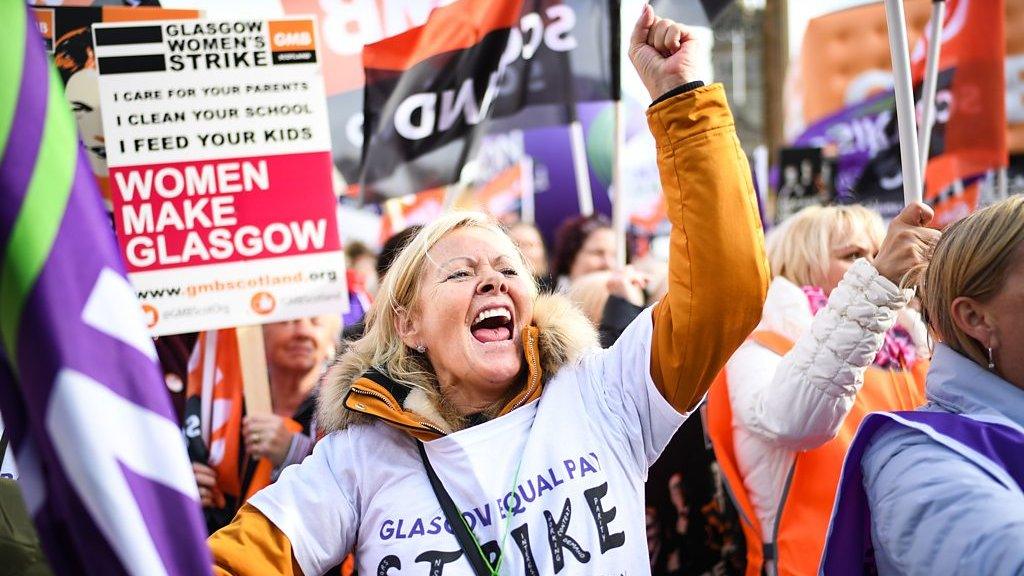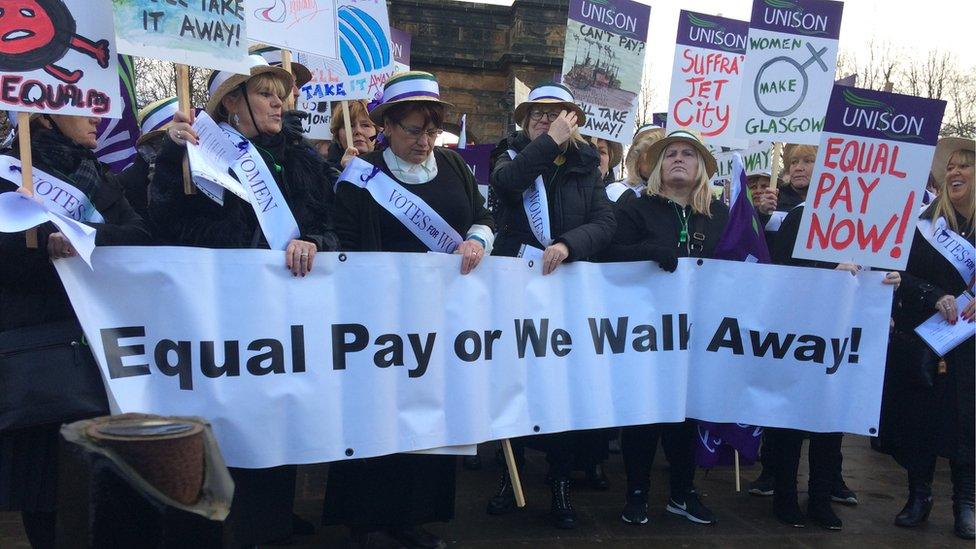Glasgow Council gender pay dispute has been a long battle
- Published

Thousands of women march in Glasgow in October
It has been a long and protracted process, but the equal pay dispute at Glasgow City Council now looks likely to be settled.
Many similar claims have been settled across Scotland in recent years.
But this one was proving more significant because of the number of claimants, the potential cost and the length of time the process was taking.
Council leader Susan Aitken always stressed her support for the women involved.
And yet she also faced a large strike in October - described by some as the biggest strike by women since the rent strikes of World War One - because unions believed the process had got bogged down.
Much still needs to be done - the claimants need to approve the deal and the funding arrangements need to be finalised.
The likely cost has not been made public but is expected to be in the region of £500-550m.
'Cherished assets'
The council always dismissed speculation that raising this money would mean selling cherished assets, making massive cuts or begging the Scottish government for cash.
Instead, the money is likely to be raised by schemes such as re-mortgaging sports centres and will not involve the disposal of significant assets.
However, the terms of those financial arrangements could still add to costs and so lead to further pressure on the council's budget and the possibility of more savings, efficiency savings or tough choices.

October's strike was omne of the biggest strike by women since the rent strikes of World War One
Another question is whether the settlement would have been achieved without the need for industrial action.
Those who led the action spoke of their frustration at a process which seemed to be getting nowhere. But others questioned why they were striking against an SNP administration which said it wanted to solve a problem they had inherited from the previous Labour administration.
Unions forcefully denied these claims and cited the sheer level of support from the women as proof there was no party-political motivation.
'Need for patience'
The unions believe the action of the women has helped bring this deal about - but the administration says it was always committed to a settlement.
Now the unions and the council have put such arguments in a past and issued a joint statement on the agreement.
However, assuming the deal goes through, the claimants will need to be patient.
The statement speaks of payments "this calendar year" but in "the next financial year". In other words - sometime between April and December.
But after such a long battle, waiting a few more months may seem like a small ask.